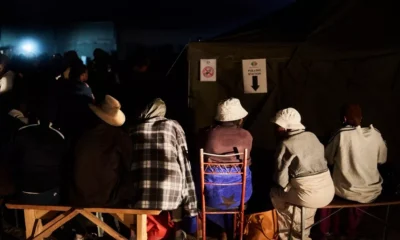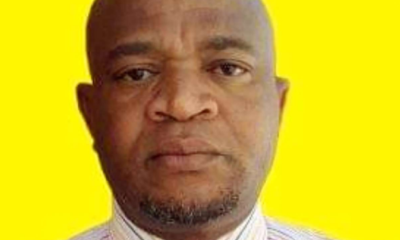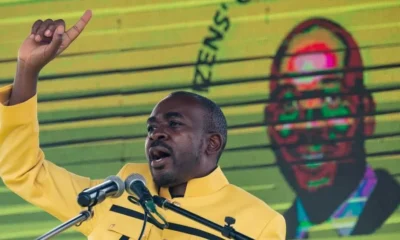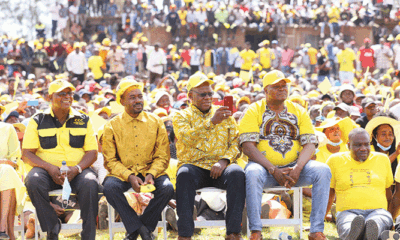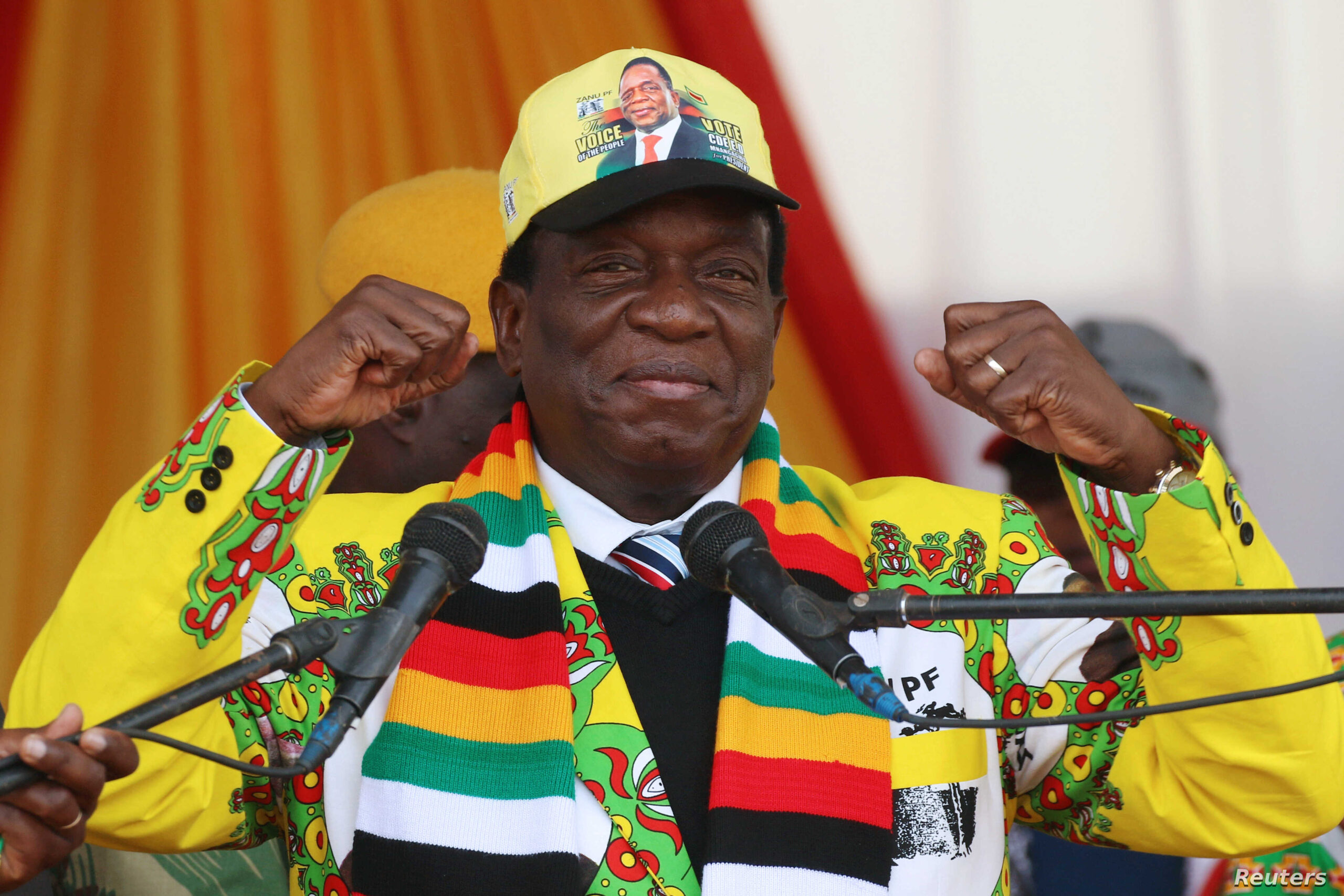
Opinion
Voter suppression and reason why it’s important to vote in the by-elections
Published
2 years agoon
By
NewsHawks
THE right to vote is one of the fundamental rights and freedoms that are known to humankind. But it is also one of the most underrated and most suppressed.
It is the right that gives expression of consent between the governors and the governed and establishes an important social contract. By voting, citizens choose who should exercise the power to govern their society.
And those who are chosen take on the responsibility to fulfill their end of the bargain.
Active and passive voters
The right to vote is unique in that every citizen exercises it whether in an active or passive form.
The citizen who goes to the polling station to cast his or her vote on election day is actively exercising their right to vote.
But the apathetic citizen who stays at home and does not go to the polling station is also passively exercising their right to vote. By not being active voters, they are outsourcing their responsibility to the active voters.
By not going out to vote, they are strengthening the choice of those who would have cast their votes. Therefore, just as the active voter affects the election outcome by casting their vote, the passive voter also affects the election outcome by not casting their vote.
Either way, whether you are an active voter or a passive voter, you will be affected by the election outcome. But at least the active voter took positive steps to influence the outcome, whereas the passive voter did nothing and must carry the consequences of their inaction.
On a balance of considerations, it is better to be an active voter.
Voter suppression
To appreciate the significance of the right to vote, one must consider how dominant sectors of society have sought to suppress it throughout history.
Just a quick glimpse at current events in the United States, one of the oldest democracies in the world, reveals how the ghost of voter suppression is always threatening this most important of democratic rights.
The US has a dark history of voter suppression, particularly among African Americans. It was not until the historic Voting Rights Act in 1965 that barriers to voting were removed for African Americans, especially in the South who were made to go through several hoops before they could exercise their rights.
For example, they were subjected to literacy tests that the majority suffering years of discrimination failed thereby preventing them from voting. Ironically, these discriminatory methods had grown on the back of success in promoting voting rights.
Following the American Civil War, the US Congress passed the 15th Amendment to the Constitution which outlawed state laws that denied male citizens the right to vote based on “race, color or previous condition of servitude.”
While this major amendment opened the right to vote for previously disenfranchised African American males, the following decades saw new discriminatory methods being implemented in the South to prevent African Americans from exercising their right to vote.
Therefore, there is a sense of déjà vu to the current machinations in some US states, a grim reminder that dominant groups are always trying to limit other citizens’ rights to vote to gain an advantage long before the polling day.
The right to universal adult suffrage, which guarantees the rights of every adult person regardless of their race, gender, or class had to be won through hard battles. In the UK, it was not until 1918 that women were allowed to vote.
In the colonies, the colonised communities were excluded from exercising voting rights. One of the key voter suppression mechanisms was to classify the colonised as non-citizens.
Unsurprisingly, the right to vote was one of the key issues that motivated liberation struggles in colonial societies.
One of the reasons that the draft 1961 Constitution proposed by the Rhodesian government was rejected was that its provisions on the right to vote suppressed the right among Black Africans. Ironically, once the old liberators took power, they discovered the joys of voter suppression mechanisms.
The art of rigging When people hear of election rigging, they have the image of election officials busy stuffing ballot boxes with fake ballots intended to favour one candidate.
They might even visualise officials running away from polling stations in the middle of the might with ballot boxes and dumping them in the river.
These crude acts of election rigging have happened in the past and may still happen from time to time.
But the risk of getting caught and undermining the whole election process is too high. Those who want to rig elections know that it is far better to undertake rigging practices well in advance of polling day.
Nic Cheeseman and Brian Klaas have an excellent book,
How To Rig
An Election, that exposes these election rigging mechanisms. It is a manual for anti-riggers to devise ways of pre-empting and overcoming rigging.
Unfortunately, international election observation processes are designed with a bias towards the polling day.
This means at best independent election observers only arrive a few months before the polling day. They observe the brief campaign period, the election day, and the immediate post-election period.
As a result, they only have sight of a part of the picture, not the whole. They do not get to observe what happens long before polling day.
Without sight of voter registration, they miss out on a critical part of the election process during which rigging is likely to take place.
Voter registration as a site of rigging
One of the key sites of rigging in advance of an election is the voter registration process. It is this process that determines the size of the voting pool. At law, only the people who are registered to vote are eligible to vote.
This might seem obvious, but I still get young people asking me privately if they can just turn up at a polling station to vote on election day without first registering as a voter.
Election illiteracy remains a key problem that political parties can only take for granted at their peril.
The important point here is that anyone who wants to affect the voting process will focus on influencing the size and quality of the voting pool.
They will aim to limit the number of people that are less likely to vote for them and to increase the numbers that are likely to support them. In Zimbabwe, Zanu PF has traditionally done better in rural areas than in urban areas.
It tends to do well among older voters and is less confident of youthful voters.
Additionally, Zanu PF has no confidence in citizens in the diaspora. It shouldn’t be surprising therefore that it has never been interested in promoting the diaspora vote.
Zanu PF is more likely to promote voter registration in rural areas and to frustrate the urban voters who have tended to vote for the opposition.
Another constituency that it does not trust and is likely to frustrate are young urban voters. One way of frustrating these urban millennials is by slowing down the process of issuing national identity (ID) cards.
The ID card is a requirement for the voter registration process. As millions of young people who have become eligible to vote do not have IDs, they are unable to register to vote.
A government that is sincere about promoting voter registration would have carried out an ID registration blitz as a precursor or parallel to the current voter registration exercise.
There is no reason why the Registrar-General’s Office and the Zimbabwe Electoral Commission (Zec) cannot have an integrated process whereby an individual gets the ID document and registers simultaneously. It is both cost-effective and reduces voter inconvenience.
Another example of the exclusionary practices in the past was the disqualification of citizens who were labelled as “aliens”.
The majority were people born in Zimbabwe to parents who had migrated from neighbouring countries like Malawi, Zambia, and Mozambique during the colonial period.
Zimbabwe is the only home they have ever known all their lives, but suddenly they found themselves excluded from the pool of voters.
As a result, hundreds of thousands of people found themselves not only state[1]less but disenfranchised.
Although their rights were fully restored under the 2013 Constitution, the practical restoration is still a work in progress, which means eligible voters remain excluded.
One of the tragic legacies of Gukurahundi in the Matebeleland and Midlands provinces in the 1980s is that families of thousands of people who were killed by the state never got death certificates as the state never acknowledged their deaths.
Children of victims of these atrocities have also struggled to get identity documents, which impacts their ability to register as voters. This leads to disenfranchisement.
Need for a voter registration strategy
The opposition needs a robust and sophisticated voter registration strategy. It must recognize that the ruling party’s strategy is to frustrate the millennials whom it does not trust.
A president who is keen to promote voter registration would have addressed the nation on this most important of political processes.
It is up to Nelson Chamisa to fill that gap and demonstrate leadership. He is the one that needs more new voters on the voters’ roll and must do more to encourage the millennials to register.
The Zimbabwe Electoral Commission posted pathetic voter registration figures in 2021, a complete negation of its constitutional mandate.
The constitution makes provision for a continuous process of voter registration, but you would not think such a facility exists. The idea was to make the process easier and more accessible.
Yet nothing has changed from the past. Zec does very little to promote voter registration outside short bursts of mobile voter registration exercises usually before election day.
The opposition needs to recognise that the election can be won or lost at the voter registration phase. This is why from the days of Tobaiwa Mudede running the Registrar General’s Office with an iron fist Zanu PF has always maintained tight control over the voters’ roll.
An election cannot be free and fair when the process of establishing the voters’ register is not open, transparent, and efficient. For its part, the opposition must raise the game and have a clear voter registration strategy.
This strategy must be decentralised down to the ward level. This is why local authority elections matter – with a candidate for every ward, there is a focal point to campaign for and encourage voter registration at the ward level.
There should be incentives for aspiring candidates both at local, constituency, and provincial levels to promote voter registration in their respective areas.
For example, anyone aspiring to represent a ward or constituency must satisfy a certain threshold in terms of the numbers of new voters that they have helped to register.
There must be similar targets for those who aspire to get into parliament through proportional representation seats.
The more aspiring candidates compete to register voters, the better for the parties and voter registration.
Why it matters to vote in these by-elections
By-elections traditionally draw a lower voter turnout than general elections. This is the biggest challenge that the CCC faces in the forthcoming by-elections.
Its opponents are keen to discourage voters by planting information that is designed to frustrate them into not bothering to go to the polls.
When they say the MPs will still be recalled, they are essentially communicating that voting is a pointless exercise.
They realized that their plan to confuse voters by grabbing the MDC-Alliance name came to naught when the CCC adopted a new name. The next strategy is to manufacture yet more confusion over it.
However, citizens must remain steadfast and vote in large numbers in the by-elections.
The first reason is that the by-elections present an opportunity for citizens to correct the democratic anomaly caused by a small group of individuals who were driven by vindictiveness to subvert and undermine the will of the people.
When people voted in 2018, they believed they were voting for the MDC-Alliance led by Chamisa.
It never occurred to them that someone else, let alone a rival like Thokozani Khupe or Douglas Mwonzora would wield the power to remove their elected representatives.
The unjust removal of MPs left several constituencies, provinces, and wards without representation.
The people know that these removals would not have been possible without the connivance of the Zanu PF regime which was hell-bent on destroying the main opposition.
This is an opportunity for citizens to correct the state-engineered anomaly but also to present a vote of confidence to Zanu PF’s surrogates.
The second reason is that the by-elections are an opportunity for citizens to participate in the democratic process from which they have so far been excluded. Unfortunately, the law regarding the recall of elected representatives excludes citizens.
There is no obligation on the political parties to consult citizens before recalling an MP. This is why Khupe and Mwonzora went on recalling sprees without any regard to the opinions of citizens. The same had happened in previous recall cases.
This is a chance for citizens to have a say in the process; to say that even though the political elites exercised their power to unjustly recall their elected representatives, the citizens can now restore them to their rightful positions.
That way, the citizens will be demonstrating that they, and not the political elites are the legitimate decision-makers.
The third reason to go out and vote on 26 March is to punish political elites who have wasted tax[1]payers’ money through unnecessary recalls. Elections are an expensive process, especially in a country that is already struggling.
The millions of dollars that are being spent on the by-elections could have been put to more productive uses.
The by-elections were not inevitable had Khupe and Mwnzora exercised forbearance. Contrary to common belief, Zimbabwe’s laws do not automatically prohibit floor-crossing between political parties.
An MP can cross the floor and retain his or her seat. He or she can only lose their seat when the party that he was a member of when he was elected notifies parliament that he or she is no longer their member.
Had it not been for vindictiveness, the MPs could have retained their seats and millions of dollars would not have been wasted on by-elections.
The fourth reason is that an over[1]whelming vote in the by-elections will represent a vote against the creeping judicialisation of politics.
There is a growing tendency among political elites to rely on judges to decide purely political questions. Some judges have imprudently accepted the invitation to wade into internal matters of political organizations and thereby getting drawn into the cesspool of party politics. These are quintessentially political matters that must be left to members, just as courts usually leave corporate affairs to shareholders and directors of a company.
The result is that there is over-reliance on opinions of the courts ahead of the court of public opinion in deciding political questions. The forthcoming by-elections emanate from decisions of the courts of law, which failed to take cognizance of the court of public opinion.
The by-elections are an opportunity to rectify this, to say that political questions are decided by the citizens, not by unelected men and women in their judicial chambers. The by-elections also present a great opportunity to defeat the politics of cronyism.
The recall of proportional representation MPs opened a pathway for cronyism. This is because, without the need for an election, Khupe and Mwonzora simply rewarded their cronies.
Khupe herself jumped at the chance to return to parliament even though it was absurd considering that she was taking a seat won by a party that she had competed against and lost to in the 2018 elections. Other cronies had also competed and lost to the MDC-Alliance’s candidates.
Their installment as MPs after the recalls represented one of the gross absurdities of the recall process. Al[1]though voters will not be able to correct this in the by-elections, a vote to restore the unjustly recalled representatives will be a vote of no confidence in the politics of cronyism promoted by Mwonzora, Khupe, and Mnangagwa.
Citizens will also remember that the MPs that were brought into parliament to replace the lawfully elected MPs used their unjust mandate to mutilate the national constitution when they voted for the two controversial constitutional bills.
They could have used their mandate to defend the constitution from the unnecessary and unlawful amendment. But true to their character as marionettes of the regime, they repaid their political benefactors by voting to change the constitution.
This helped to unlawfully extend the tenure of Chief Justice Malaba and to centralize power in the hands of the President.
Finally, the by-elections present an opportunity for citizens to halt the charade that Mwonzora and Mnangagwa are promoting through their so-called dialogue.
Mwonzora and his allies have been angling for seats on the gravy train. The problem is they have no political capital that comes from the consent of the citizens through an election. They have been riding on the political capital won by Chamisa and his party in the 2018 general elections.
Even though the by-elections present an opportunity to demonstrate this political capital, Mwonzora did not want them. It has been the odd case of a man who wants political dialogue but is not prepared to demonstrate the political capital that is required to earn a seat at the table.
The by-elections are an opportunity for citizens to make an emphatic statement that they reject the politics of puppetry.
History repeats itself
It is another moment in history when Zimbabweans have a chance to say reject political surrogacy that is designed to undermine the people’s will. Mnangagwa depriving Chamisa of public funding and channelling it to Mwonzora is classic political surrogacy.
The aim is to suffocate his major rival and gain an advantage before 2023. It will not be the first time that an election has been held where a regime surrogate is involved.
Back in 1978, Ian Douglas Smith made a deal with Bishop Abel Muzorewa, where[1]by Muzorewa became the blue-eyed boy of the colonial regime. The plan was to create a charade of black majority rule.
Muzorewa was installed as a Prime Minister following a sham election in 1979. He was pampered by the regime.
But that was also the kiss of political death because the more he got support from the regime, the more citizens lost confidence in him. In the end, a man who had presided over the country as Prime Minister of Zimbabwe-Rhodesia managed just 3 seats in the first democratic elections in 1980. The similarities couldn’t be more striking.
Mwonzora has strutted the political stage as the blue-eyed boy of the Mnangagwa regime, just like Muzorewa was Smith’s favourite.
The regime has been openly partial to him, giving him public funds and favour[1]able media coverage that no other opposition leader has ever received in the past.
But in the end, Mwonzora is set to discover, just as Muzorewa did 42 years ago, that the citizens ultimately have the final judgment, and they have the wisdom to tell the difference between right and wrong.
The honeymoon that began with the Supreme Court judgment in March 2020 was never going to last forever.
Voters have a chance to pronounce their judgment emphatically on 26 March, but to do so they must turn out in large numbers and the CCC leadership must take the by-elections seriously and campaign as if their own political lives were at stake.
*About the writer: Dr Alex Magaisa is a law lecturer at Kent University in Britain and former adviser to the late Prime Minister Morgan Tsvangirai

